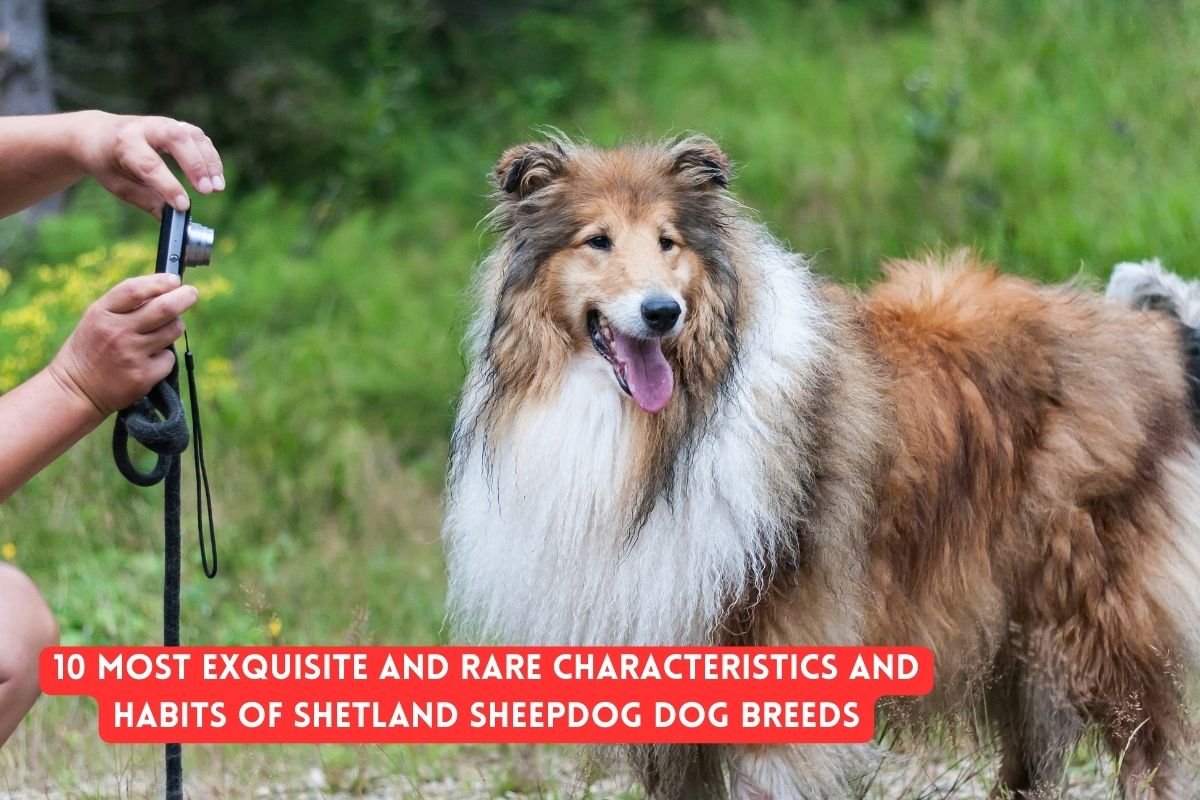Shetland Sheepdogs, often affectionately called “Shelties,” are a beloved breed known for their intelligence, agility, and unwavering loyalty. Their distinctive appearance and charming personality make them a favorite choice for many dog lovers. In this article, we explore the ten most exceptional and rare characteristics and habits that set Shetland Sheepdogs apart.
Graceful Agility
Shetland Sheepdogs exhibit remarkable agility, making them excel in various canine sports such as agility trials and obedience competitions. Their nimble movements and quick reflexes are a testament to their natural athleticism.
Elegant Coat Variations
With their luxurious double coats, Shelties come in a variety of stunning color combinations, including sable, tricolor, blue merle, and bi-blue. Each coat variation adds to their allure, making them a visually captivating breed.
Exceptional Intelligence
Ranked among the smartest dog breeds, Shetland Sheepdogs possess exceptional intelligence and a keen ability to learn commands quickly. Their sharp minds and eagerness to please make them highly trainable companions.
Gentle and Affectionate Nature
Despite their small stature, Shelties have big hearts filled with love and affection for their families. They are known for their gentle demeanor and unwavering loyalty, making them excellent companions for households of all sizes.
Vocal Communication
Shetland Sheepdogs are vocal by nature, often expressing themselves through a range of barks, whines, and yips. While their vocalizations may serve as effective watchdog alerts, proper training can help mitigate excessive barking tendencies.
Herding Instincts
Originating from a lineage of herding dogs, Shelties retain strong herding instincts. They may exhibit behaviors such as nipping at heels or circling, especially when interacting with children or other pets.
Playful Energy
Despite their dignified appearance, Shetland Sheepdogs possess an innate sense of playfulness and curiosity. They thrive on mental and physical stimulation, enjoying activities such as fetch, agility courses, and interactive puzzles.
Alert and Watchful
With their keen senses, Shelties are naturally alert and watchful, making them excellent watchdogs. They possess a vigilant nature and will readily alert their owners to any perceived threats or unusual activity.
Adaptive to Various Environments
Shetland Sheepdogs are adaptable companions who can thrive in a range of environments, from spacious rural settings to compact urban dwellings. Their versatility and moderate exercise requirements make them well-suited for various lifestyles.
Longevity and Health
On average, Shetland Sheepdogs have a relatively long lifespan of 12 to 14 years when provided with proper care and nutrition. With regular exercise, routine veterinary check-ups, and a balanced diet, they can lead healthy and fulfilling lives.
Conclusion
Shetland Sheepdogs embody a rare combination of elegance, intelligence, and affection, making them cherished companions for dog enthusiasts worldwide. From their graceful agility to their unwavering loyalty, each characteristic and habit contributes to their unique charm and appeal.
FAQs
Are Shetland Sheepdogs good with children?
Yes, Shelties are known for their gentle nature and make excellent companions for families with children when properly socialized.
Do Shetland Sheepdogs require extensive grooming?
Yes, Shetland Sheepdogs have a double coat that requires regular brushing to prevent mats and tangles.
Are Shelties prone to excessive barking?
While Shelties can be vocal, consistent training can help manage and minimize excessive barking tendencies.
Do Shetland Sheepdogs have specific exercise needs?
Yes, Shelties benefit from daily exercise to keep them mentally and physically stimulated. Activities such as walks, playtime, and agility training are recommended.
Are Shetland Sheepdogs prone to any health issues?
Shetland Sheepdogs may be susceptible to certain health conditions such as hip dysplasia, eye problems, and dermatological issues. Regular veterinary care and health screenings are essential for maintaining their well-being.
